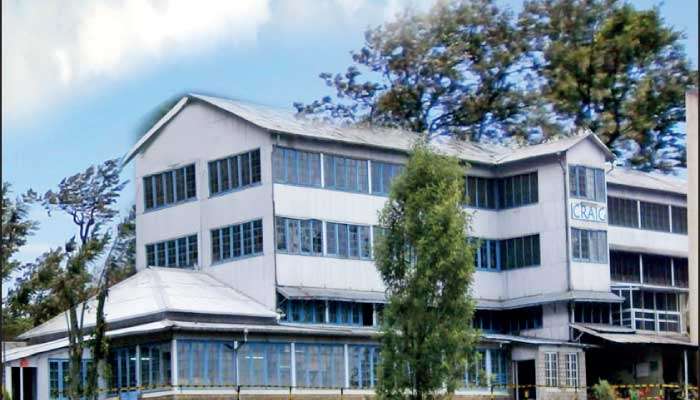1. Case Background
Petitioner: Maskeliya Plantations PLC
Respondents: Sri Lanka Tea Board, Jayampathy Molligoda (Chairman), Anura Siriwardena (Director General), E.A.J.K. Edirisinghe (Tea Commissioner)
Court of Appeal Case: CA (Writ) Application No. 337/2020
Court: Court of Appeal of the Democratic Socialist Republic of Sri Lanka
Nature of Application: Writs of Certiorari and Prohibition under Article 140 of the Constitution
Core Issue: The petitioner challenged the decision of the respondents to cancel the registration of the Craig Estate Tea Factory, alleging violations of natural justice and substantive unreasonableness in the administrative actions.
2. Procedural History
- Inspection and Inquiry:
- On 17 July 2020, the respondents conducted a surprise inspection at the Craig Estate Tea Factory and collected tea samples.
- The samples allegedly contained ferrous sulphate above permissible limits, leading to an inquiry on 14 August 2020.
- Following the inquiry, the respondents canceled the factory’s registration under Section 8(2) of the Tea Control Act No. 51 of 1957.
- Petition and Interim Relief:
- The petitioner filed for writs of Certiorari and Prohibition, challenging the cancellation.
- Interim relief was granted by the Court of Appeal on 16 September 2020.
- Decision Timeline:
- Written submissions: 15 July 2024 (Petitioner), 8 July 2024 (Respondents).
- Decision: 27 November 2024.
3. Key Legal Issues
- Procedural Fairness:
- Did the inspection and inquiry adhere to principles of natural justice?
- Was the petitioner given adequate notice and opportunity to present its case?
- Substantive Reasonableness:
- Was the decision to cancel the factory’s registration proportionate and justified based on the evidence?
- Adequacy of Alternative Remedies:
- Could the petitioner have pursued an administrative appeal under Section 37(1)(e) of the Tea Control Act instead of seeking judicial review?
4. Arguments Presented
Petitioner’s Claims:
- Inspection Process: The collection, sealing, and labeling of tea samples were conducted without transparency, compromising the chain of custody and the integrity of the samples.
- Inquiry Process: The inquiry violated natural justice by:
- Providing only two days’ notice.
- Failing to communicate specific charges or evidence.
- Denying access to laboratory reports.
- Preventing cross-examination of witnesses.
- Conducting the inquiry by a biased official (Deputy Tea Commissioner).
- Substantive Unreasonableness: Reliance on compounded allegations from 2017 and unverified laboratory reports.
- Impact: The cancellation caused significant financial losses and jeopardized employees’ livelihoods.
Respondents’ Defense:
- Compliance with Law: The inspection and inquiry were conducted under the Tea Control Act to uphold quality standards.
- Evidence Validity: Laboratory reports confirmed contamination, providing sufficient grounds for action.
- Procedural Adherence: Adequate notice was provided, and the petitioner’s representatives had the opportunity to participate in the inquiry.
- Alternative Remedy: The petitioner could have appealed to the Minister under Section 37(1)(e) of the Tea Control Act.
5. Court’s Analysis
- Procedural Fairness:
- The court found significant procedural lapses:
- Lack of transparency in the inspection process.
- Failure to provide adequate notice or evidence.
- Denial of cross-examination opportunities.
- Bias due to the inquiry being conducted by a Tea Board official.
- These violations contravened principles of natural justice, such as audi alteram partem and nemo judex in causa sua.
- The court found significant procedural lapses:
- Substantive Reasonableness:
- The reliance on unverified laboratory reports and compounded allegations from 2017 was deemed improper.
- The cancellation’s economic impact was disproportionately severe, failing the proportionality test under Associated Provincial Picture Houses Ltd v. Wednesbury Corporation.
- Alternative Remedy:
- The court acknowledged the statutory appeal provision but found it inadequate due to:
- Lack of interim relief during the appeal.
- Procedural violations rendering the cancellation decision unlawful.
- The court acknowledged the statutory appeal provision but found it inadequate due to:
6. Judgment
- Outcome: The Court of Appeal issued a Writ of Certiorari, quashing the decision to cancel the Craig Estate Tea Factory’s registration.
- Reasoning: Procedural and substantive deficiencies invalidated the respondents’ actions.
- Relief Granted:
- Nullification of documents related to the cancellation (P5, P6, P8).
- No costs awarded.
7. Implications
- For Administrative Bodies:
- Reinforces the need for transparency and adherence to natural justice in inspections and inquiries.
- Highlights the importance of proportionality in administrative sanctions.
- For the Tea Industry:
- Ensures accountability in maintaining quality standards.
- Emphasizes the economic consequences of regulatory decisions on stakeholders.
- For Judicial Precedents:
- Affirms the court’s role in rectifying procedural violations and ensuring fairness in administrative actions.
- Clarifies the interplay between statutory remedies and judicial review.
8. Conclusion
The Court of Appeal’s decision underscores the importance of procedural integrity and fairness in administrative actions. The respondents’ failure to adhere to these principles invalidated their decision, reaffirming that even regulatory authorities must act within the bounds of justice and reasonableness. The judgment sets a precedent for balancing regulatory enforcement with the rights of stakeholders in Sri Lanka’s tea industry.
Read Full Judgement














